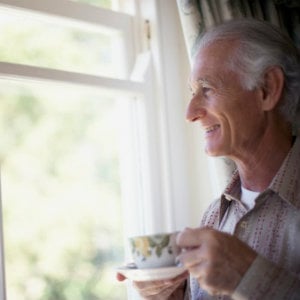“The potentially harmful effects of loneliness and social isolation on health and longevity, especially among older adults, are well established,” according to a December 2017 article in the New York Times. Feeling lonely, the article continues, can raise stress hormone levels and inflammation. This, in turn, boosts the risk of developing multiple diseases, including heart disease, Type 2 diabetes, dementia and arthritis.
Approximately 30 percent of older adults feel lonely fairly often, according to the article, with effects more far-reaching than you might imagine. Older adults who feel isolated and/or left out and are lacking companionship can even lose some ability to perform daily activities, including bathing/grooming and preparing meals. Research has also shown that loneliness can lead to “disrupted sleep, abnormal immune responses and accelerated cognitive decline.”
It’s important, though, to separate the concept of loneliness from that of social isolation. Social isolation occurs when there aren’t many interactions with other people, whereas loneliness is the feeling of being isolated. Loneliness is a “subjective perception . . . the discrepancy between one’s desired and actual level of social connection.” Some people, those who don’t desire significant amounts of interaction, may not feel lonely at all. Other people, though, may experience loneliness even when surrounded by plenty of people if the relationships aren’t emotionally rewarding.
If you’re feeling lonely, what should you do? Time.com lists a couple of actions NOT to take. One of them is drinking too much booze. When you’re alone, there is nobody to suggest that you refrain from pouring another drink, so this can lead to too much alcohol intake. Excess drinking, the article points out, “can be a quick but dangerous route to trying to feel better.” A 2016 study published in the Journal of Aging and Health revealed how this situation is especially common for middle-aged and older people.
Living on the couch, watching television marathons, can also be tempting – but it’s not the route to choose on an ongoing basis. Instead, incorporating exercise into your daily routine can be a key strategy to take. Exercise has been proven to be one of the most effective ways to fight against gloomy feelings, which include loneliness, and even a walk can make a difference.
It can also be tempting to medicate your feelings away with food, perhaps having a pint of ice cream for dinner. That’s a third behavior to avoid.
An article published by the Albert Einstein College of Medicine shares, interestingly enough, one positive aspect to loneliness: how this feeling can motivate someone to connect with others and find the right environment in which to thrive, one where the person feels as though he or she belongs.
But, this article doesn’t downplay challenges associated with aging. As people become older, his or her social network can become diminished because of death, because friends have moved away and so forth. When this happens, the goal should be to optimize the current network. Technology can help, as people can communicate regularly through email, Skype and similar methods, but the article calls computer-based socialization both a “blessing and curse,” the latter designation because it keeps people “sedentary and largely home-bound.”
Walking groups can provide exercise and socialization, as can a wide range of group activities, whether they take place at church, at a senior center or another suitable location. The overall goal is to take positive action to reduce the negative effects of loneliness.













